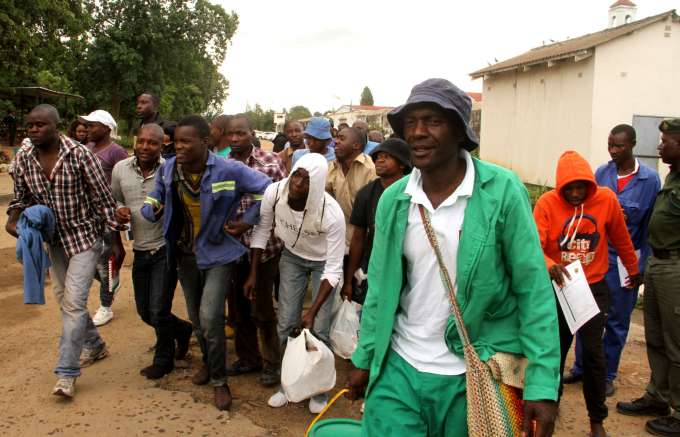By Helen Kadirire
A former inmate released from prison through presidential amnesty on March 25 has been hauled before the courts on theft charges.

Evans Chikwanda, 26, was remanded in custody to April by Harare magistate Tilda Mazhande. He is facing two counts of unlawful entry.
According to State papers, on March 16, Chikwanda allegedly unlawfully entered into Patrick Chimbwa’s house and stole a satchel, $20, and some clothes.
It is also alleged that on March 27, Chikwanda went to Gift Itaya’s house in Rainham and attempted to unlock one of the doors with a set of keys.
The court heard Chikwanda attempted to open a window at the house but ran away after Itaya called out to his neighbours to apprehend him.
When he appeared in court, Chikwanda strenuously denied the charges arguing that he could not have committed one of the offences since he was still in prison.
“I could not have broken into one of the houses and stolen goods because on March 16, I was in prison. People are just targeting me because I have just come out of jail. They beat me for a crime that I did not commit,” he said.
Mazhande later ordered the State to ascertain if he is of fixed abode before being considered for bail.
President Emmerson Mnangagwa granted a clemency order on March 21, to all qualifying convicted female prisoners, juveniles, those terminally ill, and those serving at the open prison.
The president also freed inmates convicted to life sentences on or before February 28, 1998 for male prisoners and those sentenced on or before February 29, 2010 for female prisoners.
However, the amnesty was not extended to those convicted of murder, rape, carjacking and armed robbery and those who have benefitted from the previous amnesty.
The president can exercise the powers enshrined under the prerogative of mercy covered in Sections 112 (1)(a), (c) and (d) of the Constitution.
The prerogative of mercy refers to the right and power of a sovereign, state president, or other supreme authority to commute a death sentence, to change the mode of execution, or to pardon an offender. Daily News






